Episode 4: Anna Mansfield on the loss of shared spaces after covid and the importance of designing for the needs of women and young people
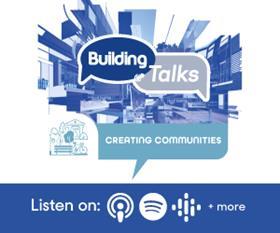
Today Building has released episode 4 of its Building Talks podcast, dedicating four episodes to interviews with leading names in urban design about their approaches to community-building.
New developments can face massive local opposition, attacked for poor design, a lack of public services and low quality civic space.
These are some of the challenges we will be tackling in this series by talking to professionals about their projects, influences and motivations.
Our guest in today’s episode is Anna Mansfield.
Anna is a director at Publica, a research-based urban design consultancy. She initially thought she wanted to be a fashion designer, but found her way into architecture, and from there into urban design and thinking about the city at a much larger scale. She is also a big advocate for urban designers having a broader view of how cities work - she is a part-time magistrate herself.
Like many people now working in a sector that has community, engagement and place at its heart, Anna observes how much the urban design discussion has moved on over recent years: “The conversations that we have are totally different from the ones we had 13 years ago”, she says. “People’s interest and understanding of how we create and reinvigorate a sense of place has just transformed.”
A key change that has occurred is the emphasis that is now put on celebrating and reinforcing the existing sense of place in every location where the built environment has an impact. She favours an urban design approach that enables places to speak to themselves, rather than imposing a singular new look and feel.
Significant recent examples of the practice’s work include the subtle redesign of Hanover Square and the nearby Bond Street station Elizabeth Line development, where Publica has contributed to the renaissance of an overlooked but historic London square. And Publica has also played an important part in urban design interventions in other parts of central London, including Marylebone Lane and Bond Street, each time adopting an approach that is low-key but cleverly helps reinforce the existing sense of place.
One of the things that concerns Anna, particularly since covid, is the loss of what she sees as our vital shared spaces, partly due to the disappearance of many traditional entertainment and retails spaces. “The thing that worries me most is that we’re suffering a loss of the shared spaces that we have as a society”, observes Anna. “Pubs, clubs, live music [venues] - all those other spaces where we meet people who are not the same as us, where we do things, they’re all diminishing rapidly, and disappearing.”
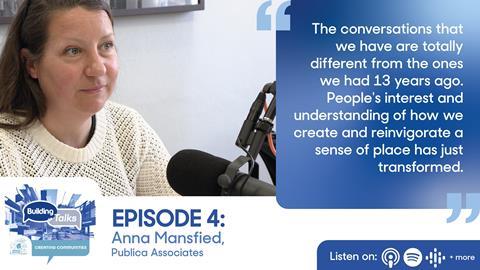
Publica places a huge emphasis on taking a deep dive into the specifics of each location and the issues that impact an area or community. “One of the things we’ve always done is put research at the foundation of everything we do”, says Anna. “And so, in our work everything stems from our research and informs it.”
This approach has led the practice to be engaged on a wide range of strategic and policy work. Many of these projects looked at the specific needs of women and young people in the built environment.
>> Also read: Hanover: Exemplary collaboration and placemaking
“We worked with the GLA on a piece of guidance on making London more child friendly, just before the pandemic,” she notes. “One of the things we found out was that between 1971 and 2010, the number of children in the UK who are allowed to walk to school by themselves had dropped from 86% to 25%. And that’s only going in one direction.”
Working with the GLA and mayor’s design advocate, Dinah Bornat, Anna helped develop a strategy that “really foregrounds” the importance of young people in the built environment, so that designers and policy makers started to think about how to put the needs of younger people first from the very beginning of every project.
That piece of work identified that “there are four main things you need to think about” she explains. These are: “to change policy; think about participation from the start; [consider] how you manage spaces, and of course, designing spaces and thinking about where we put play spaces for children at the beginning of a project.”
Anna also argues that the social and cultural importance of retail has often been overlooked. She highlights the way in which department stores in particular have traditionally doubled as convening spaces, especially for women and young people. Part of Publica’s work is therefore focused on helping reimagine what the centres of our towns and cities can become, as traditional retails morphs into something news, and our urban spaces look for new animating forces to sustain them into the future.
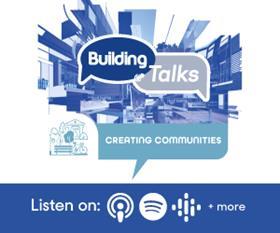
This interview is part of Building the Future Commission’s focus on creating communities, previous interviews in the series have featured David Rudlin at BDP, Selina Mason at Lendlease and Jo Wright at Perkins&Will. The podcast is co-hosted by Building Design’s architectural editor Ben Flatman and Building’s editor Chloe McCulloch.
You can hear episode 4 of the podcast series by clicking on the player at the top of the story and below. And if you wish to subscribe so that you receive our a bonus episode to round-off this series next Tuesday, then go to one of the main podcast providers such as Spotify and Apple.


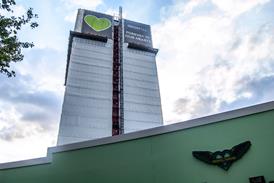

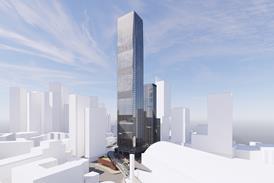
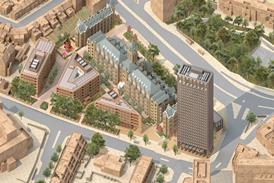










No comments yet